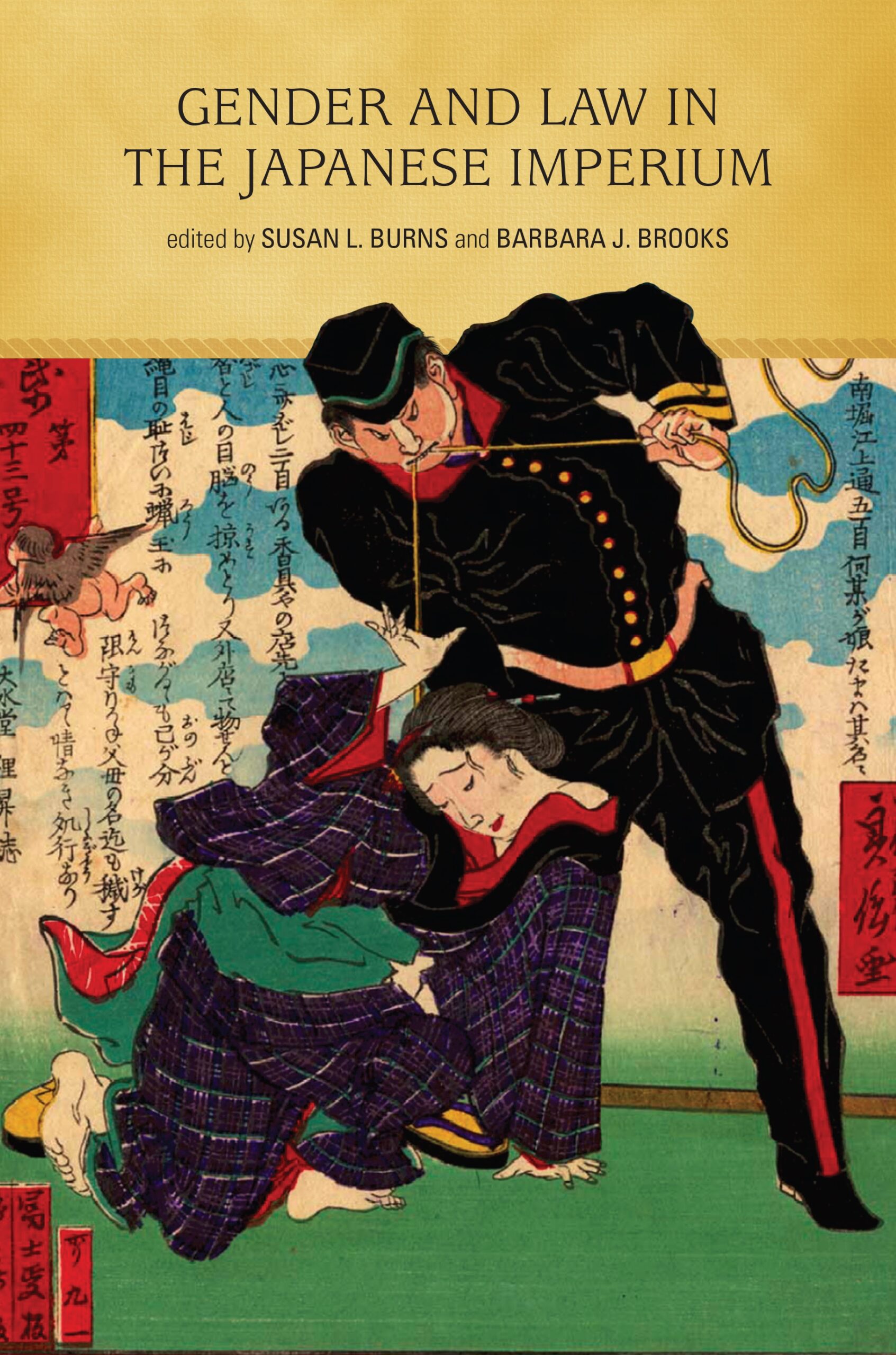Gender and Law in the Japanese Imperium
- About the Book
-
Beginning in the nineteenth century, law as practice, discourse, and ideology became a powerful means of reordering gender relations in modern nation-states and their colonies around the world. This volume puts developments in Japan and its empire in dialogue with this global phenomenon. Arguing against the popular stereotype of Japan as a non-litigious society, an international group of contributors from Japan, Taiwan, Germany, and the U.S., explores how in Japan and its colonies, as elsewhere in the modern world, law became a fundamental means of creating and regulating gendered subjects and social norms in the period from the 1870s to the 1950s. Rather than viewing legal discourse and the courts merely as technologies of state control, the authors suggest that they were subject to negotiation, interpretation, and contestation at every level of their formulation and deployment. With this as a shared starting point, they explore key issues such reproductive and human rights, sexuality, prostitution, gender and criminality, and the formation of the modern conceptions of family and conjugality, and use these issues to complicate our understanding of the impact of civil, criminal, and administrative laws upon the lives of both Japanese citizens and colonial subjects. The result is a powerful rethinking of not only gender and law, but also the relationships between the state and civil society, the metropole and the colonies, and Japan and the West.
Collectively, the essays offer a new framework for the history of gender in modern Japan and revise our understanding of both law and gender in an era shaped by modernization, nation and empire-building, war, occupation, and decolonization. With its broad chronological time span and compelling and yet accessible writing, Gender and Law in the Japanese Imperium will be a powerful addition to any course on modern Japanese history and of interest to readers concerned with gender, society, and law in other parts of the world.
Contributors: Barbara J. Brooks, Daniel Botsman, Susan L. Burns, Chen Chao-Ju, Darryl Flaherty, Harald Fuess, Sally A. Hastings, Douglas Howland, Matsutani Motokazu.
- About the Author(s)
-
Susan L. Burns, Editor
Susan L. Burns is professor of Japanese history and East Asian languages and civilizations at the University of Chicago.Barbara J. Brooks, Editor
Contributors
- Douglas R. Howland
- Harald Fuess
- Sally Hastings
- Daniel Botsman
- Darryl Flaherty
- Chao-ju Chen
- Motokazu Matsutani
- Reviews and Endorsements
-
- The editors of this thought-provoking collection note the increased interest among academics in legal history and its implications for understanding the modernizing and colonizing world of the nineteenth and twentieth centuries. . . . This well-written and coherent collection of essays will intrigue undergraduate and graduate students interested in Japanese history, gender studies, or law and is sure to inspire additional research.
—The Historian - This fascinating collection of nine essays, with an introduction by Susan L. Burns, offers a varied and stimulating consideration of the relationship between law, gender, and family, and its socio-historical context in modern and imperial Japan. . . . In short, every chapter of this volume is worth reading. The essays are thought-provoking, original, and engaging. Highly recommended.
—New Zealand Journal of Asian Studies
- The editors of this thought-provoking collection note the increased interest among academics in legal history and its implications for understanding the modernizing and colonizing world of the nineteenth and twentieth centuries. . . . This well-written and coherent collection of essays will intrigue undergraduate and graduate students interested in Japanese history, gender studies, or law and is sure to inspire additional research.
- Supporting Resources
-





